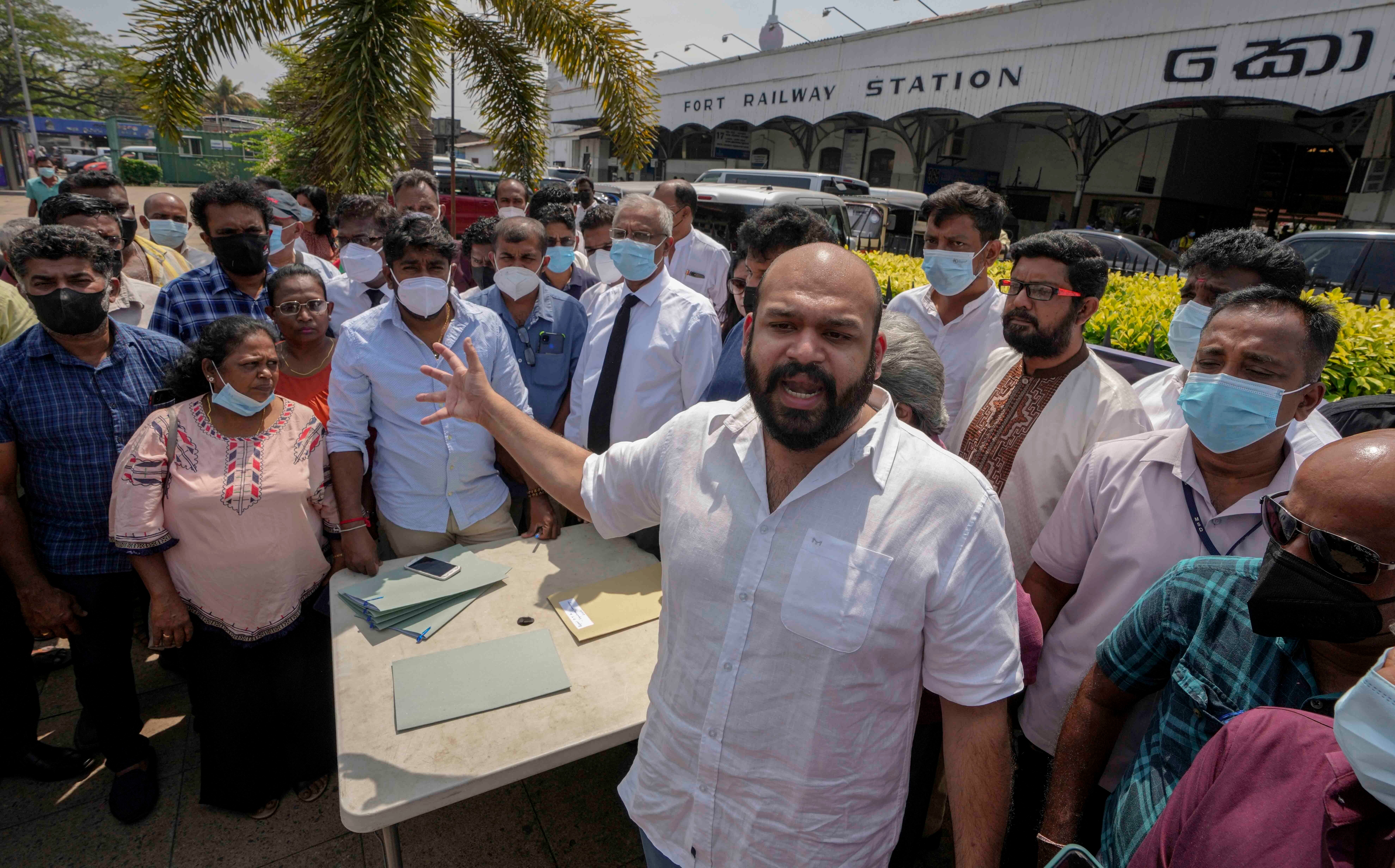Sri Lanka's archbishop speaks out against activist's arrest
Sri Lanka’s top Roman Catholic bishop has spoken out against what he says is the wrongful arrest of an activist

Your support helps us to tell the story
From reproductive rights to climate change to Big Tech, The Independent is on the ground when the story is developing. Whether it's investigating the financials of Elon Musk's pro-Trump PAC or producing our latest documentary, 'The A Word', which shines a light on the American women fighting for reproductive rights, we know how important it is to parse out the facts from the messaging.
At such a critical moment in US history, we need reporters on the ground. Your donation allows us to keep sending journalists to speak to both sides of the story.
The Independent is trusted by Americans across the entire political spectrum. And unlike many other quality news outlets, we choose not to lock Americans out of our reporting and analysis with paywalls. We believe quality journalism should be available to everyone, paid for by those who can afford it.
Your support makes all the difference.Sri Lanka’s top Roman Catholic bishop on Tuesday spoke out against what he said was the wrongful arrest of an activist, saying that the government was targeting those who criticized its failure to properly investigate the 2019 Easter Sunday bombings.
Archbishop of Colombo Cardinal Malcolm Ranjith likened to an “abduction” the arrest of activist Shehan Malaka Gamage, who has publicly questioned whether politicians used the 2019 attacks to force a change of government later that year.
The bombings on April 21, 2019, killed 260 people after hitting three churches and three hotels. Local Islamist militants who had pledged allegiance to the Islamic State group were blamed for the six near-simultaneous suicide attacks.
Activist Gamage was forcibly taken away from his home by plain clothed men, who were later identified as police, on Monday evening. Gamage shared the incident live on Facebook which shows him asking the men for the reason for taking him.
A court in Colombo released him on bail Tuesday, hours after Cardinal Ranjith spoke from his residence.
“Had he not confirmed his arrest to the country through a live video, we wouldn't know his whereabouts even now,” said Ranjith. “Fortunately he had the courage to show the country what was happening live.”
Ranjith called the activist’s arrest an “indecent and thuggish act” that resembled “an abduction”.
In the Facebook video, Gamage says that he initially tried to escape from the men who arrived in a white van not knowing their identity.
Sri Lankan security forces were accused of abducting dissidents and rebel suspects often in unmarked white vans during the country’s long civil war. Some victims were never seen again.
Ranjith has said repeatedly that the country's top law enforcement officers had failed to arrest the true conspirators behind the bloody 2019 Easter bombings, despite filing charges against some of those directly involved. Instead they were “arresting those who are demanding justice for the attacks,” he said Tuesday.
The archbishop suggested that the country's attorney general and police chief were acting “on the whims of those in the political world.”
There was no immediate comment from the attorney general’s office, but police spokesman Nihal Talduwa claimed that normal procedures were followed in arresting Gamage.
Talduwa said Gamage was arrested on charges of attempting to “excite disaffection toward the state”.
In repeated media conferences, Gamage alleged there was a possibility that some politicians and officials had deliberately failed to act on intelligence ahead of the 2019 attacks as they looked ahead to that year's national elections.
Ranjith himself wrote a letter to President Gotabaya Rajapaksa last year raising questions over allegations that some members of state intelligence knew and had met with at least one of the attackers.
In 2019, friction between the country's president and prime minister who belonged to different political parties were blamed for the government’s failure to act on near-specific foreign intelligence warnings. That led to the election of Rajapaksa later in the year on a platform of national security.
The government has denied involvement of any state agency in the attacks.
A presidential commission recommended that then-President Maithripala Sirisena be prosecuted for negligence, along with other officials and police personnel. However, no charges have been brought against Sirisena, now a government ally, or police officials.